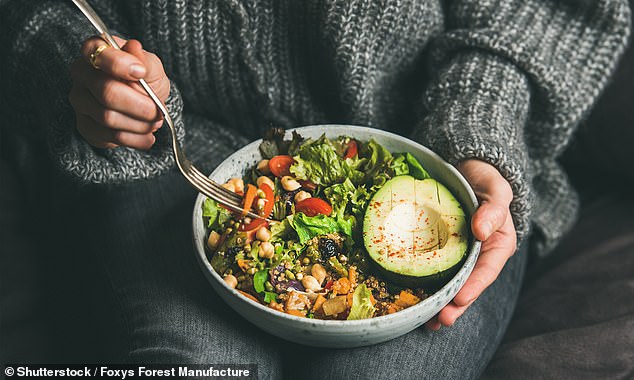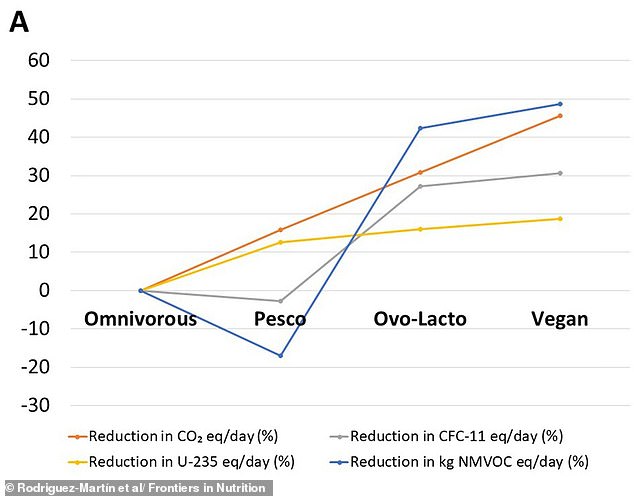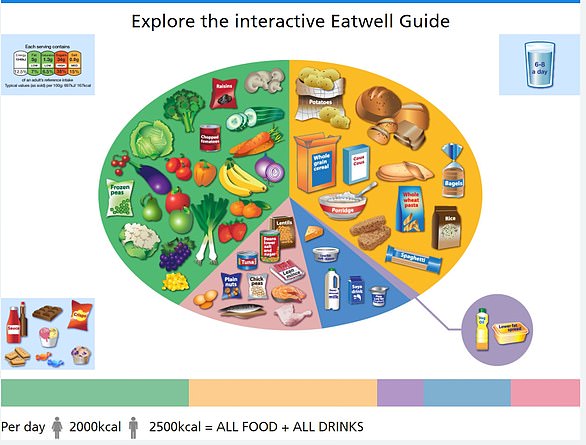Would you go vegan to save the planet?
If you’re trying to reduce your carbon footprint, a new study may finally be the thing to push you to ditch the meat once and for all.
Adopting a plant-based diet is one of the most effective ways of slashing your impact on the environment, according to experts from the University of Granada.
Their research revealed that going fully plant–based can halve carbon emissions and significantly reduce the load on natural resources.
For the study, the team used a baseline of a healthy omnivorous Mediterranean diet rich in fruits and vegetables, whole grains and lean protein, with moderate amounts of fish, poultry and meat.
This was compared to a vegan diet where all animal–based foods had been replaced by plant alternatives such as tofu, textured soy protein, tempeh, soy yoghurt, seeds or legumes.
For both, the team created four week–long sets of daily menus including breakfast, a mid–morning snack, lunch and dinner – designed to deliver 2,000 calories per day – and calculated the ecological footprint.
‘We found that moving from a Mediterranean to a vegan diet generated 46 per cent less carbon dioxide (CO2) while using 33 per cent less land and 7 per cent less water, and also lowered other pollutants linked to global warming,’ Dr Noelia Rodriguez–Martín, from the University of Granada, said.

It might not be the most appetising for everyone, but scientists have discovered adopting a vegan diet is much better for the planet (file image)

Compared to an omnivorous diet, the vegan alternative was linked to reduced CO2 emissions and lower levels of other greenhouse gases
The analysis, published in Frontiers in Nutrition, revealed that ‘cradle–to–home’ greenhouse gas emissions stood at 3.8kg per day of CO2 equivalents for the omnivorous diet.
This dropped to 2.1kg per day for the vegan diet – a reduction of 46 per cent.
A similar pattern was found for water use, dropping by seven per cent from the omnivorous diet to the vegan alternative, while agricultural land occupation was also slashed by a third.
The study also analysed variations of vegetarian diets, such as ones that included fish and seafood or eggs and dairy.
Both of these also had a lower impact on the environment than the animal based option, and all provided all essential nutrients.
‘Our analyses showed that all three plant–based menus were nutritionally balanced, with only vitamin D, iodine and vitamin B12 needing a bit more attention,’ Dr Rodriguez–Martín added.
‘Overall, the indicators clearly highlight the environmental and health advantages of plant–based diets compared with the omnivorous baseline.
‘The more plant foods, the smaller the ecological footprint.’

An example of vegan food: This spaghetti is made of soybean protein and is served with carrot top pesto, aubergine and chickpeas
Animal–based foods have a higher carbon footprint primarily due to the production of greenhouse gases like methane and nitrous oxide.
Animals like cows and sheep produce methane during digestion, and both animal waste and the fertilisers used for their feed release nitrous oxide.
For those who want to help the planet – but are not prepared to give up animal–based foods entirely, the findings are still relevant, the authors said.
‘You don’t need to go fully vegan to make a difference,’ Dr Rodriguez–Martín said.
‘Even small steps toward a more plant–based diet reduce emissions and save resources. Every meal that includes more plants helps move us toward healthier people and a healthier planet.’
The amount of people going vegan in the UK has skyrocketed in recent years, with a 2.4-fold increase between 2023 and 2025.
Now, around 4.7 per cent of the population count themselves completely plant-based.
A separate study, published earlier this year, revealed that you can only eat 255g of chicken or pork a week without harming the planet.
That’s the equivalent of just two chicken breasts or one pork chop across the entire week.
It’s also bad news for fans of beef, veal, lamb or venison – as red meat is off the cards entirely if you want to stick within planetary boundaries, the experts said.
Scientists from the Physicians Committee for Responsible Medicine have also revealed the exact amount of money you could save by going vegan.
According to their calculations, changing to a low–fat, vegan diet could save you £1.44 ($1.80) per day.
Over the course of the year, that’s an impressive saving of £525 ($657).
Meanwhile, a report compiled by scientists and HelloFresh suggests the likes of shepherd’s pie and fish and chips could soon be off Britain’s dinner menu in favour of more eco–friendly options such as kelp noodles and ‘meatballs’ made of mushrooms.
WHAT SHOULD A BALANCED DIET LOOK LIKE? 
Meals should be based on potatoes, bread, rice, pasta or other starchy carbohydrates, ideally wholegrain, according to the NHS
• Eat at least 5 portions of a variety of fruit and vegetables every day. All fresh, frozen, dried and canned fruit and vegetables count
• Base meals on potatoes, bread, rice, pasta or other starchy carbohydrates, ideally wholegrain
• 30 grams of fibre a day: This is the same as eating all of the following: 5 portions of fruit and vegetables, 2 whole-wheat cereal biscuits, 2 thick slices of wholemeal bread and large baked potato with the skin on
• Have some dairy or dairy alternatives (such as soya drinks) choosing lower fat and lower sugar options
• Eat some beans, pulses, fish, eggs, meat and other proteins (including 2 portions of fish every week, one of which should be oily)
• Choose unsaturated oils and spreads and consuming in small amounts
• Drink 6-8 cups/glasses of water a day
• Adults should have less than 6g of salt and 20g of saturated fat for women or 30g for men a day
Source: NHS Eatwell Guide

Dining and Cooking